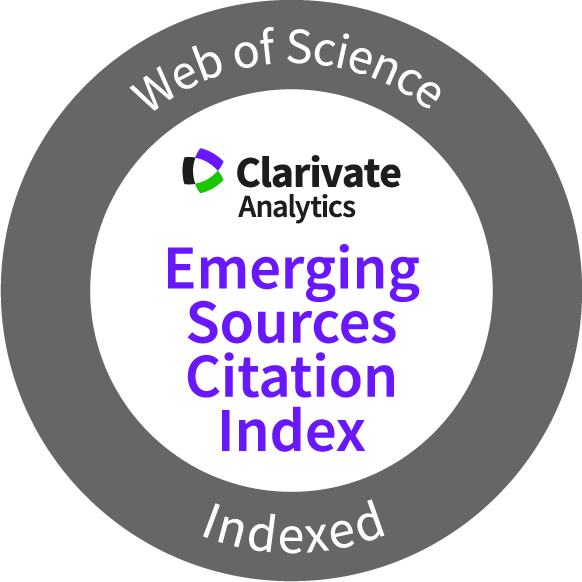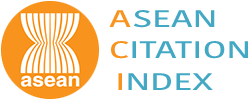KNOWLEDGE, ATTITUDE AND PERCEPTION ON CLIMATE CHANGE AND DIETARY CHOICES IN A PREDOMINANTLY CHINESE UNIVERSITY STUDENTS POPULATION IN KLANG VALLEY
Keywords:
Barriers, climate change, climate-friendly, source of information, university studentAbstract
Climate change is a public health threat that is aggravated by the food supply chain. A dietary shift to climate-friendly foods is a feasible strategy to mitigate it. This study aimed to investigate the associations between knowledge, attitude, perception towards climate change, and barriers to climate-friendly foods with dietary choices of university students in Klang Valley. A cross-sectional study was conducted among 303 Malaysian university students (71.9% Chinese) aged 18 to 30 years in Klang Valley, by using Google form to assess knowledge, attitude, perception towards climate change, barriers to climate-friendly food, and climate-friendly dietary choices. The average climate-friendly diet score (CFDS) was 0.36±2.21, with a significantly higher CFDS among females than males (p=0.012). The majority of them were having good knowledge (76.6%), a good attitude (66.3%), and a moderate level of perception (62.0%) towards climate change. About two-thirds of them reported social media as the main (63.0%) and preferred (63.7%) sources to receive information about climate change. Through multiple linear regression, barriers to climate-friendly food choices (β=-0.084; p<0.001) significantly contributed to climate-friendly dietary choices (F=4.215; p<0.001), whereby 14.9% of the variances were climate-friendly dietary choices of university students. Findings could be incorporated into dietary education to tackle barriers to climate-friendly foods among university students.
Downloads
Metrics
References
Alam, S.S., Ahmad, M., Ho, Y.H., Omar, N.A. & Lin, C.Y. 2020. Applying an extended theory of planned behavior to sustainable food consumption. Sustainability, 12(20): 8394-8408. DOI: https://doi.org/10.3390/su12208394
Banerjee, N., Sarwar, R.M. & Bakhtiar, F. 2020. Change for climate: findings from the national youth climate change survey Malaysia. 1st Ed. UNDP, UNICEF and EcoKnights Malaysia, Putrajaya. 12 pp.
Barbara, R. & Pego, C.F. 2020. Changes in eating habits among displaced and non-displaced university students. International Journal of Environmental Research and Public Health, 17(5369): 3390-3399. DOI: https://doi.org/10.3390/ijerph17155369
Brough, A.R., Wilkie, J.E.B., Ma, J.J., Isaac, M.S. & Gal, D. 2016. The green-feminine stereotype and its effect on sustainable consumption. Journal of Consumer Research, 43(4): 567-582. DOI: https://doi.org/10.1093/jcr/ucw044
Bussel, L.M., Kuijsten, A., Mars, M., Feskens, E.J.M. & Veer, P. 2019. Taste profiles of diets high and low in environmental sustainability and health. Food Quality and Preference, 78: 103730. DOI: https://doi.org/10.1016/j.foodqual.2019.103730
Calvo, E.D. & Apilado, M.S. 2015. Awareness, knowledge and attitude on climate change of students: input for the development of ICM on climate change. International Journal of Current Research, 7(5): 15857-15859.
Chen, P.J. & Antonelli, M. 2020. Conceptual models of food choice: influential factors related to foods, individual differences, and society. Foods, 9(12): 1898. DOI: https://doi.org/10.3390/foods9121898
Contento, I.R. 2008. Nutrition education: linking research, theory, and practice. Asia Pacific Journal of Clinical Nutrition, 17(1): 176-179.
Food and Agriculture Organization of the United Nations (FAO) 2017. FAOSTAT: emissions intensities. 1st Ed. FAO, Rome.
Gazzaz, N.M. & Bassam, A.A. 2021. Assessment of the level of knowledge of climate change of undergraduate science and agriculture students. World Journal of Education, 11(5): 41. DOI: https://doi.org/10.5430/wje.v11n5p41
George, D. & Mallery, M. 2010. SPSS for windows step by step: a simple guide and reference, 17.0 update. 10th Ed. Pearson, Boston.
Grunert, K.G. 2011. Sustainability in the food sector: a consumer behaviour perspective. International Journal on Food System Dynamics, 2(3): 207–218.
Institute for Public Health (IPH), National Institutes of Health & Ministry of Health Malaysia. 2020. National Health and Morbidity Survey (NHMS) 2019: Volume 1: NCDs – Non-Communicable Diseases: Risk Factors and other Health Problems. Institute for Public Health, National Institutes of Health (NIH), Ministry of Health Malaysia, Kuala Lumpur. 1–392 pp.
Intergovernmental Panel on Climate Change (IPCC) 2014. Climate change 2014 synthesis report summary chapter for policymakers. IPCC, Geneva.
Kanyama, A.C. & Gonzalez, A.D. 2009. Potential contributions of food consumption patterns to climate change. The American Journal of Clinical Nutrition, 89(5): 1704-1709. DOI: https://doi.org/10.3945/ajcn.2009.26736AA
Karim, N.A., Yusof, S.M., Harun, Z., Sulong, F., Hudin, R.S., Din, S.H. & Ngadikin, S.N. 2008. Habitual food intake of adults aged 18 to 59 years: Malaysian adult nutrition survey 2003. 1st Ed. Ministry of Health Malaysia, Putrajaya. 67 pp.
Kause, A., Bruin, W.B., Hopkins, J.M. & Olsson, H. 2019. Public perceptions of how to reduce carbon footprints of consumer food choices. Environmental Research Letters, 14: 1-9. DOI: https://doi.org/10.1088/1748-9326/ab465d
Kendrovski, V., Schmoll, O. & Matthies-Wiesler, F. 2019. Health and climate action. 1st Ed. WHO, Denmark. 1 pp.
Korkala, E.A.E., Hugg, T.T. & Jaakola, J.J.K. 2014. Awareness of climate change and the dietary choices of young adults in Finland: a population-based cross-sectional study. PLoS One, 9(5): 48-97. DOI: https://doi.org/10.1371/journal.pone.0097480
Leiserowitz, A., Ballew, M., Rosenthal, S. & Sernaan, J. 2020. Climate change and the American diet. 1st Ed. Yale Program on Climate Change Communication, New Haven.
Makiniemi, J.P. & Vainio, A. 2014. Barriers to climate-friendly food choices among young adults in Finland. Appetite, 74: 12-19. DOI: https://doi.org/10.1016/j.appet.2013.11.016
Mann, D., Thornton, L., Crawford, D. & Ball, K. 2018. Australian consumers’ views towards an environmentally sustainable eating pattern. Public Health Nutrition, 21(14): 2714-2722. DOI: https://doi.org/10.1017/S1368980018001192
Mead, E., Roser-Renouf, C., Rimal, R.N., Flora, J.A., Maibach, E.W. & Leiserowitz, A. 2012. Information seeking about global climate change among adolescents: the role of risk perceptions, efficacy beliefs and parental influences. Atlantic Journal of Communication, 20(1): 31-52. DOI: https://doi.org/10.1080/15456870.2012.637027
Menrad, K., Klein, A.E. & Schops, J. 2018. Factors influencing consumers’ behavioral intention towards climate-friendly food consumption in southern Germany. Agricultural Economists, 30: 969-1000.
Ministry of Natural Resources and Environment Malaysia (KeTSA) 2014. A roadmap of emissions intensity reduction in Malaysia. 1st Ed. KeTSA, Putrajaya. 310 pp.
Moy, F.M., Eng, J.Y., Zulkefli, N.F., Ng, L.L. & Ismail, M.A. 2020. Is the diet of a middle income country sustainable ? An exploratory study from Malaysia. Preprints. DOI: https://doi.org/10.20944/preprints202008.0006.v1
Odonkor, S.T., Dei, E.N. & Sallar, A.M. 2020. Knowledge, attitude, and adaptation to climate change in Ghana. The Scientific World Journal, 2020: 1-9. DOI: https://doi.org/10.1155/2020/3167317
Paternoster, R. & Bachman, R.D. 2016. Statistics for criminology and criminal justice. 1st Ed. California: Sage Publications Inc. 59 pp.
Pathak, S., Bhatia, A. & Jain, N. 2010. Carbon footprints of Indian food items. Agriculture Ecosystems and Environment, 139(1-2): 66-73. DOI: https://doi.org/10.1016/j.agee.2010.07.002
Pee, S.D., Hardinsyah, R., Jalal, F., Kim, B.F., Semba, R.D., Deptford, A., Fanzo, J.C., Ramsing, R., Nachman, K.E., McKenzie, S. & Bloem, M.W. 2021. Balancing a sustained pursuit of nutrition, health, affordability andclimate goals: exploring the case of Indonesia. American Society for Nutrition, 114: 1686-1697. DOI: https://doi.org/10.1093/ajcn/nqab258
Pohjolainen, P., Tapio, P., Vinnari, M., Jokinen, P. & Rasanen, P. 2016. Consumer consciousness on meat and the environment - exploring differences. Appetite, 101: 37-45. DOI: https://doi.org/10.1016/j.appet.2016.02.012
Poore, J. & Nemecek, T. 2018. Reducing food’s environmental impacts through producers and consumers. Science, 360(6392): 987-992. DOI: https://doi.org/10.1126/science.aaq0216
Preece, C.N., Padfield, R. & Papargyropoulou, E. 2012. A preliminary assessment of greenhouse gas emission trends in the production and consumption of food in Malaysia. International Journal of Technology, 3(1): 56-66.
Puspita, T., Friskarini, K., Marina, R. & Suryatma, A. 2020. Knowledge and attitude of junior-high-school children in Bogor, Indonesia, related to climate change health impacts. Advances in Health Sciences Research, 24: 220-226. DOI: https://doi.org/10.2991/ahsr.k.200311.043
Ranganathan, J., Vennard, D., Waite, R., Lipinski, B., Searchinger, T., Dumas, P., Forslund, A., Guyomard, H., Manceron, S., Marajo-Petitzon, E., Le Mouël, C., Havlik, P., Herrero, M., Zhang, X., Wirsenius, S., Ramos, F. & Yan, X. 2016. Shifting diets for a sustainable food future, creating a sustainable food future, Working paper, Installment 11 of creating a sustainable food future. World Resource Institute, Washington.
Rozin, P. 2007. How does culture affect choice of foods? 1st Ed. Woodhead Publishing, Cambridge. 66-80 pp. DOI: https://doi.org/10.1533/9781845693381.1.66
Shariff, A.H., Amran, A. & Goh, Y.N. 2012. Determinants of behavioural intention on sustainable food consumption among consumers' of low income group: empirical evidence from Malaysia. Journal of WEI business and economics, 1(1): 29-38.
Siegrist, M., Visschers, V.H.M. & Hartmann, C. 2015. Factors influencing changes in sustainability perception of various food behaviors: results of a longitudinal study. Food Quality and Preference, 46:33-39. DOI: https://doi.org/10.1016/j.foodqual.2015.07.006
Smith, K.R., Woodward, A., Campbell-Lendrum, D., Chade, D., Honda, Y., Liu, Q., Olwoch, J.M., Revich, B. & Sauerborn, R. 2014. Human health: impacts, adaptation, and co-benefits. 1st Ed. Cambridge University Press, Cambridge. 11 pp.
Sulistyawati, S., Mulasari, S.A. & Sukesi, T.W. 2018. Assessment of knowledge regarding climate change and health among adolescents in Yogyakarta, Indonesia. Journal of Environmental and Public Health, 2018: 7. DOI: https://doi.org/10.1155/2018/9716831
Tilman, D. & Clark, M. 2014. Global diets link environmental sustainability and human health. Nature, 515(7528): 518–522. DOI: https://doi.org/10.1038/nature13959
Tobler, C., Visschers, V.H.M. & Siegrist, M. 2012. Consumers’ knowledge about climate change. Climate Change, 114: 189-209. DOI: https://doi.org/10.1007/s10584-011-0393-1
Vermeir, I. & Verbeke, W. 2008. Sustainable food consumption among young adults in Belgium: theory of planned behaviour and the role of confidence and values. Ecological Economics, 64(3): 542-553. DOI: https://doi.org/10.1016/j.ecolecon.2007.03.007
Published
How to Cite
Issue
Section
Any reproduction of figures, tables and illustrations must obtain written permission from the Chief Editor (wicki@ukm.edu.my). No part of the journal may be reproduced without the editor’s permission





















